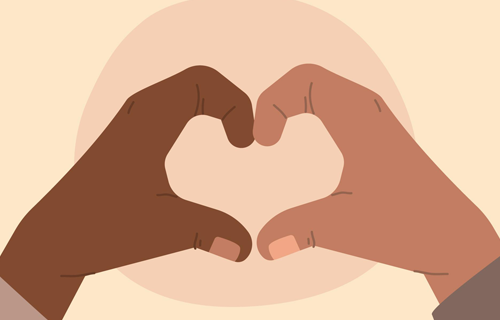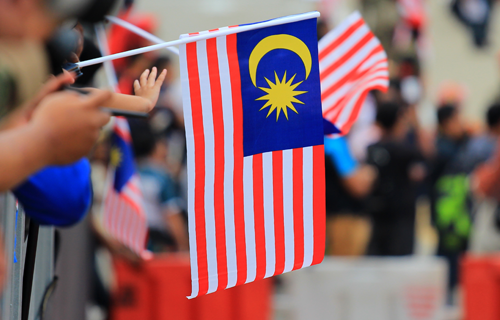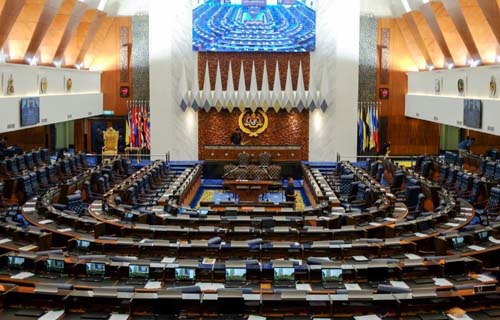Racial slurs: Too harmful to normalise?

Written by Evon Goh, a member of Akar Umbi Kita, a programme for emerging advocates against racial discrimination by Architects of Diversity, Imagined Malaysia, IDEAS and the European Union. This article is published in conjunction with the International Day for the Elimination of Racial Discrimination.
“Eh, where’s apunene? Is he coming?”
I paused, looking around for the source of the voice, slightly taken aback. It was one of the very few times that I have heard of the offensive racial term being used in speech, much less among university students.
Just then, an Indian man in his early 20s, similar to the group of guys talking, walks up to them. I continued to observe the group, the Chinese guys backslapping the Indian man in welcome.
“Eh, apunene is here! Why la u so late dei?”
“Eh, apunene! You coming to Kyo or not? Come only la”
I watched as the Indian man relished in the embrace of his friends, assuring them that he would be coming along with them. I was confused and intrigued. Perhaps my naive and idealistic consciousness expected someone to call out the unnecessary use of the offensive racial term. But what I saw made me realise that interactions like this one was not new within the group and that the term was as unflinchingly used as any other word.
Does this interaction ring any bell? Have you seen or heard anyone use a racial slur without any intention to demean or discriminate, but as a term of endearment instead? Is that even possible?
A racial slur is a word or phrase that is used with the intention to demean or insult a person or a group of individuals on the basis of their race or ethnicity. Common examples include the N-word that is used against black people and the K-word that is used against Malaysian Indians. Racial slurs typically originate from events or periods of time during which particular racial groups are oppressed. For example, the N-word and the K-word were used in the past to address African slaves in the United States and Indian labourers in Malaysia.
Although slavery as we know it has arguably ceased to exist, the racist terms that were used to address slaves have not. In fact, a slew of other racial slurs have become more prominent, appearing alongside older terms in daily interactions. Within the Malaysian context, some of these racial slurs include ‘Bengali’, ‘mamak’ and ‘Sakai’. Although these 3 terms were originally just markers of racial identity and were not harmful, their evolving usage and development of negative connotations attached to them have transformed them into racial slurs. On the other hand, there are also racial slurs that have lost their original negative meaning overtime. This highlights the pliant nature of the meaning of racial terms. Nowadays, most Malaysians use racial slurs in a joking manner or as a term of endearment. This begs the question of whether it is possible for racial slurs to be normalised. Are racial slurs still harmful if they are not used as a weapon?
“To what extent are racial slurs harmful or can it be normalised for the better?”
Some may argue that it is possible to normalise racial slurs, maybe even beneficial. This is because normalisation would take away the harmful intent behind the meaning of the word and eventually replace it with positive intent. An example of this is the word ‘Mamak’. For many of us, the ‘mamak’ is a ubiquitous Malaysian symbol, representing a place to gather, catch up with friends and have our lunch breaks. However, what many of us are not aware of is that the word ‘mamak’ has another meaning. It is a racial slur used against the Indian Muslim community in Malaysia. For example, due to the low social status ‘mamak’ vendors occupy, even highly educated and accomplished Indian Muslims may be referred to using the term as an insult. The insult is meant to humiliate and imply that all Indian Muslims are meant “to serve ‘teh tarik”. Nonetheless, not only has this term been normalised for convenience, it has also become an integral part of the Malaysian experience and identity. Distinguished Professor Datuk Dr Shamsul Amri Baharuddin of Universiti Kebangsaan Malaysia (UKM) and Eric Olmedo examine the term ‘mamak’ and propose a theory of ‘mamakisation’ in explaining the relationship between food and social cohesion in multiethnic Malaysia. They suggest that ‘mamak’ stalls have become a symbol of social cohesion in Malaysia because Malaysians of various ethnicities, religions, ages and social standings often gather at the food stall. Shamsul states that this shows that Malaysians are innovative in solving ethnic problems.
On the other hand, there are also arguments against racial slurs. I believe that it is extremely difficult to completely normalise and neutralise a racial slur because its original harmful meaning and intent will always be present. Firstly, the usage of racial slurs even without ill intent could perpetuate racial stereotypes and prejudices by highlighting and reinforcing the differences between and within racial groups. This is not beneficial because it does not address the social structures and power differentials that created these differences in the first place. Hence, the harmful intent behind the origins of the slurs go unacknowledged.
This ties in with how the normalisation of racial slurs is unproductive because it neglects history. Racism and other racial problems in Malaysia are not new; they have been marred by history and culture over years of colonisation and post-independence events. Therefore, without proper acknowledgment and honouring of the troubled histories of racial slurs, it wouldn’t be surprising that racial issues in our country have not been resolved despite years of effort.
Most importantly, in spite of the potential for racial slurs to be normalised and imbued with positive meaning, there is no guarantee against ill intent. Although efforts to normalise racial slurs have good intentions, there is always a possibility of people using them to cause harm. Thus, the potential of racial slurs being abused despite efforts to normalise them is not worth it. Even if a particular racial slur was to be redeemed, it should be done by the racial group which the racial slur is targeted at.
Additionally, as long as authority figures such as teachers and political and religious leaders have impunity against punishment for using racial slurs, it would be challenging to propagate a normalisation agenda for racial slurs. This is because a normalisation agenda would give offenders room to falsely claim that they are ‘just joking’ or that they ‘didn’t mean to insult’. In other words, a normalisation agenda could unintentionally perpetuate a culture of impunity for offences related to racial slurs.
Going back to the question, ‘To what extent are racial slurs harmful or can it be normalised for the better?”. I believe that racial slurs can never be completely normalised and neutralised because human behaviour, or more specifically, ill-intent is too difficult to control and contain. Instead of trying to normalise racial slurs and pushing aside their negative meanings, it could be helpful for all of us to call out racism in our individual ways.


